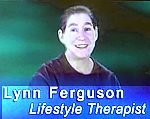The Doctors Who Think They Know Soy and Estrogen…But Don’t: Here’s Some News for New Vegetarians
Today I listened to the TV Show called The Doctors TV and they were asked a question by an audience member who had just become a vegetarian.
This young woman inquired about soy and the relationship with estrogen. She has an infant that she is nursing and wondered if the soy would have an effect on her child.
The doctors who are not experts on soy and nutrition or wellness issues replied with mixed facts and inaccurate information. I would like to add my observations and direct experience of fifty years. It just bothers me that these docs attempted to discuss soy within the context of a whole food being talked about as if it were a drug. Giving a measurement about grams of soy protein consumed daily is more like a drug prescription than a healthy food regimen for dietary health and wellness to these newbies.
One comment was intelligent and that deserves to be acknowledged as relevant and fairly accurate. The fact that infants have been given soy formulas for decades without any problems is true. Many infants who cannot breastfeed have successfully used soymilk or soy formula as a substitute until they could eat solid food. I had an allergic reaction to soy formula as an infant, but I easily digest soy foods as an adult. A soy formula is vastly different than a whole food form of soy. The human body responds differently to soy isolates or whole foods from fermented soy like tempeh, tamari, and miso.
Soy isolates are NOT whole foods and are inappropriate for human consumption. They have been found to alter estrogen and other hormonal levels in the bodies of humans and laboratory animal test subjects. It is prudent to avoid soy isolates. No safe levels are realistic when it comes to wellness.
Whole foods are edamame, miso, tamari, tempeh, tofu, and soymilk made from the whole bean. These whole foods are consumed every day for an entire lifetime in Asian countries and now around the world given that commercial access to soybeans is common.
Most of us who want to maintain a healthy digestive and immune system love our daily miso soup and sauces made from miso. Many of my favorite dipping sauces and dressings for salads and vegetables combine miso paste with other spices and foods. Tofu and tempeh are often eaten daily or used in a variety of side dishes. Seasoning and flavoring food with tamari and shoyu is common in Asian cooking and food preparation.
If you research Asian cultures, you will find that those who follow their traditional cuisine have relatively few endocrine or hormonal imbalances – even late in life. Whereas their American and European counterparts are suffering from all kinds of hormonal imbalances and irregularities. See what I mean!?! Check it out for yourself and learn just how smart it is to include whole food sources of soy in your daily diet for wellness.
By the way, infants and children thrive with whole foods from soy, sea salt, and other legumes, beans, sea vegetables, and whole grains. There is an enormously large population on this planet that demonstrates this for thousands of years to be a suitable, intelligent, and healthy practice for vegetarians and the rest of the groups who can include soy in their daily diet.




September 26th, 2010 at 7:31 pm
1 teaspoon Old Bay seasoning